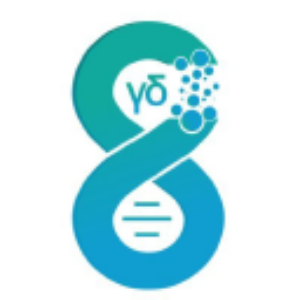IN8bio Presents Progression-Free Survival Update from Phase 1 Study of INB-200 at 2024 American Society of Clinical Oncology Annual Meeting
Rhea-AI Summary
IN8bio (Nasdaq: INAB) presented promising preliminary data of INB-200 for glioblastoma at the 2024 ASCO Annual Meeting. The Phase 1 study of INB-200 showed that 92% of patients surpassed the median progression-free survival (PFS) of 7 months achieved with the standard Stupp regimen, with a median follow-up of 11.7 months. Notably, one patient remained progression-free for nearly three years. The study involved 13 patients across three dosing regimens, revealing a favorable safety profile with no serious treatment-related adverse events. All patients completing the full treatment protocol exceeded the median PFS of 7 months, and radiologic evaluations indicated positive treatment effects. IN8bio is now progressing with a Phase 2 study to further evaluate the therapy.
Positive
- 92% of patients treated with INB-200 exceeded the median PFS of 7 months.
- One patient remained progression-free for nearly three years.
- Favorable safety profile with no serious treatment-related adverse events.
- No cytokine release syndrome or neurotoxicity reported across all dose cohorts.
- Positive radiologic evaluations, including resolution of midline shift in some patients.
- Durability of gamma-delta T cells evidenced by their presence in relapsed tumor 148 days post-infusion.
Negative
- Small sample size of only 13 patients could limit the generalizability of results.
- Phase 1 results are preliminary and may not predict long-term outcomes.
- Potential for high expectations leading to market volatility if future results are less favorable.
- Dependence on future Phase 2 and Phase 3 trials to confirm efficacy and safety.
News Market Reaction – INAB
On the day this news was published, INAB declined 8.40%, reflecting a notable negative market reaction.
Data tracked by StockTitan Argus on the day of publication.
Majority of fully dosed patients exceeded the expected median PFS based on age and tumor status; one patient from Cohort 2 remains alive and progression free at almost three years
Radiologic evaluation indicative of “treatment effect” including changes in MRI enhancement and resolution of mid-line shift
NEW YORK, June 03, 2024 (GLOBE NEWSWIRE) -- IN8bio, Inc. (Nasdaq: INAB), a clinical-stage biopharmaceutical company developing innovative gamma-delta (γδ) T cell therapies, presented encouraging preliminary clinical data of INB-200 at the 2024 American Society of Clinical Oncology (ASCO) Annual Meeting in Chicago on June 1, 2024.
The preliminary data demonstrated that
The Phase 1 study assessed the safety and preliminary efficacy of the addition of DeltEx DRI gamma-delta T cells to maintenance therapy with TMZ. The trial assessed the administration of 1x107 cells per dose across three different dosing regimens increasing from a single dose delivered on cycle 1 day 1 during maintenance in Cohort 1, to three doses delivered on day 1 of cycles 1-3 in Cohort 2, to six doses delivered on day 1 of cycles 1-6 in Cohort 3. Thirteen patients have been enrolled and treated with INB-200, including three patients in Cohort 1 (1 dose), four patients in Cohort 2 (3 doses) and six patients in Cohort 3 (6 doses).
“For far too long, there has been little advancement for patients with GBM to improve their treatment outcomes,” said Burt Nabors, M.D., Division Director, Neuro-oncology at the Heersink School of Medicine at the University of Alabama at Birmingham. “The addition of multiple intracranial injections of IN8bio’s DeltEx DRI gamma-delta T cells shows the potential for extending progression-free survival in this patient population when administered in combination with the current standard of care used to treat newly diagnosed glioblastoma patients.”
The current standard of care for newly diagnosed glioma patients consists of primary resection, six weeks of daily chemoradiation therapy followed by six cycles of monthly maintenance TMZ therapy (Stupp regimen), which achieves a median PFS of 7 months and an overall survival (OS) of approximately 14 to 16 months. All of the patients in the Phase 1 study that received all of their protocol defined treatments with INB-200 exceeded a median PFS of 7 months, including one patient in Cohort 2 that remains alive and progression free for nearly three years.
“The safety profile of gamma-delta T cells continues to be strong across all three dose cohorts with no cell therapy-related toxicities such as immune effector cell-associated neurotoxicity syndrome or cytokine release syndrome reported in patients receiving up to the maximum dose of six infusions of the therapy,” said Trishna Goswami, M.D., Chief Medical Officer, IN8bio. “We are now dosing newly diagnosed patients in Arm A of the Phase 2 study with INB-400, evaluating up to six infusions of our autologous gamma-delta T cells in combination with the Stupp protocol.”
The poster presentation at ASCO included promising activity and safety data for the fully enrolled trial, as of the data cutoff date of May 1, 2024.
Key findings from the ongoing Phase 1 study:
- All patients who completed all protocol mandated doses surpassed a median standard-of-care PFS of 7 months, with a majority also exceeding the expected PFS based on their age and MGMT status of their tumors.
92% of evaluable patients treated with INB-200 for GBM exceeded a median PFS of 7 months achieved with the standard-of-care regimen (Stupp regimen).- One patient with an IDH-mutant glioma remains alive and progression free at 34.9+ months; IDH-mutant patients in a recently published clinical trial of an IDH inhibitor demonstrated a median PFS of 11.1 months in the control arm and 28.5 months in the experimental arm.
- No treatment-related serious adverse events, dose-limiting toxicities, cytokine release syndrome, infusion reactions, or immune effector cell-associated neurotoxicity syndrome have been reported in any cohort.
- The most common treatment emergent adverse events were Grade 1-2 toxicities consisting of white blood cell and platelet count decreases related to standard-of-care TMZ.
- Preserved gamma-delta T cells were found in relapsed tumor 148 days after initial DRI infusion in one patient with paired biopsies, pointing to durability of DRI gamma-delta T cells.
- Radiographic evaluation pre- and post-treatment included resolution of midline shift in one patient with evidence of changes in enhancement attributed to treatment effect in multiple patients. One subject was found to have a
36% decrease in a lesion attributed to positive treatment effect.
“As these encouraging results from our ongoing INB-200 Phase 1 study continue to mature, we look forward to reporting additional results from a long-term follow-up of cohort 3 at future medical meetings,” said William Ho, CEO and co-founder, IN8bio.
Poster details:
Abstract #: 2042
Title: INB-200: Fully enrolled Phase 1 study of gene-modified autologous gamma-delta (γδ) T cells in patients with newly diagnosed glioblastoma multiforme (GBM) receiving maintenance temozolomide (TMZ)
Presenter: Mina Lobbous, MBChB, MD, MSPH, University of Alabama at Birmingham
Session Name: Central Nervous System Tumors
Date and Time: Saturday, June 1, 2024 from 10:00 a.m. – 1:00 p.m. EDT
Poster Board: #341
The poster presentation is accessible on the Company’s website here.
About INB-200
INB-200 is a genetically modified autologous DeltEx DRI product candidate for the treatment of solid tumors. This novel platform utilizes genetic engineering to generate chemotherapy-resistant gamma delta T cells which can be administered concurrently with standard-of-care treatment in solid tumors. This is a powerful, synergistic investigational treatment approach designed to enable gamma-delta T cells to persist in the presence of chemotherapy and maintain their natural ability to recognize, engage and kill cancer cells.
INB-200 is the first genetically engineered gamma-delta T cell therapy to be administered to patients with solid tumors in an initial indication of GBM.
About IN8bio
IN8bio is a clinical-stage biopharmaceutical company focused on the discovery, development and commercialization of gamma-delta T cell product candidates for solid and liquid tumors. Gamma-delta T cells are a specialized population of T cells that possess unique properties, including the ability to differentiate between healthy and diseased tissue. IN8bio’s DeltEx platform employs allogeneic, autologous, iPSC and genetically modified approaches to develop cell therapies designed to effectively identify and eradicate tumor cells.
IN8bio has initiated a Phase 2 trial of INB-400 in GBM at multiple centers across the United States and has two ongoing Phase 1 trials in solid and hematological tumors, including INB-200 for GBM and INB-100 for patients with hematologic malignancies undergoing transplantation. IN8bio also has a broad portfolio of preclinical programs focused on addressing other hematological and solid tumor cancers. For more information about IN8bio and its programs, please visit www.IN8bio.com.
Forward Looking Statements
This press release may contain forward-looking statements made pursuant to the safe harbor provisions of the Private Securities Litigation Reform Act of 1995. These statements may be identified by words such as “aims,” “anticipates,” “believes,” “could,” “estimates,” “expects,” “forecasts,” “goal,” “intends,” “may,” “plans,” “possible,” “potential,” “seeks,” “will” and variations of these words or similar expressions that are intended to identify forward-looking statements, although not all forward-looking statements contain these words. Forward-looking statements in this press release include, but are not limited to, statements regarding the potential of IN8bio’s product candidates' therapeutic potential; the potential of DeltEx DRI to treat patients with newly diagnosed GBM; the potential of multiple intracranial injections of IN8bio’s DeltEx DRI gamma-delta T cells to extend PFS for newly diagnosed GBM patients; the potential activity and safety data of IN8bio’s product candidates; and the timing of IN8bio’s future presentations and data readouts. IN8bio may not actually achieve the plans, intentions, or expectations disclosed in these forward-looking statements, and you should not place undue reliance on these forward-looking statements. Actual results or events could differ materially from the plans, intentions, and expectations disclosed in these forward-looking statements as a result of various factors, including: uncertainties inherent in the initiation and completion of preclinical studies and clinical trials and clinical development of IN8bio’s product candidates, including patient enrollment and follow-up and IN8bio’s ability to meet anticipated deadlines and milestones; the risk that IN8bio may not realize the intended benefits of its DeltEx platform; availability and timing of results from preclinical studies and clinical trials; whether the outcomes of preclinical studies will be predictive of clinical trial results; whether initial or interim results from a clinical trial will be predictive of the final results of the trial or the results of future trials; the risk that trials and studies may be delayed and may not have satisfactory outcomes; potential adverse effects arising from the testing or use of IN8bio’s product candidates; uncertainties related to regulatory approvals to conduct trials or to market products; IN8bio’s reliance on third parties, including licensors and clinical research organizations; and other important factors, any of which could cause actual results to differ from those contained in the forward-looking statements, that are described in greater detail in the section entitled “Risk Factors” in our Quarterly Report on Form 10-Q filed with the Securities and Exchange Commission (SEC) on May 9, 2024, as well as in other filings IN8bio may make with the SEC in the future. Any forward-looking statements contained in this press release speak only as of the date hereof, and IN8bio expressly disclaims any obligation to update any forward-looking statements contained herein, whether because of any new information, future events, changed circumstances, or otherwise, except as otherwise required by law.
Corporate Contact:
IN8bio, Inc.
Glenn Schulman, PharmD, MPH
203.494.7411
gdschulman@IN8bio.com
Investors
Meru Advisors
Lee M. Stern
lstern@meruadvisors.com
Media Contact
Kimberly Ha
KKH Advisors
917.291.5744
kimberly.ha@kkhadvisors.com








